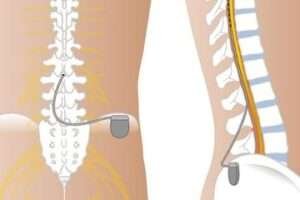Order 41 Rule 27 CPC – True Test Is Whether Appellate Court Can Pronounce Judgment without Considering Additional Evidence Sought To Be Adduced
Case: Sanjay Kumar Singh vs State of Jharkhand
Coram: Justices MR Shah and BV Nagarathna
Case No.: CA 1760 OF 2022
Court Observation: “Admissibility of additional evidence does not depend upon the relevancy to the issue on hand, or on the fact, whether the applicant had an opportunity for adducing such evidence at an earlier stage or not, but it depends upon whether or not the appellate court requires the evidence sought to be adduced to enable it to pronounce judgment or for any other substantial cause”
It is true that the general principle is that the appellate court should not travel outside the record of the lower court and cannot take any evidence in appeal. However, as an exception, Order 41 Rule 27 CPC enables the appellate court to take additional evidence in exceptional circumstances. It may also be true that the appellate court may permit additional evidence if the conditions laid down in this Rule are found to exist and the parties are not entitled, as of right, to the admission of such 4 evidence. However, at the same time, where the additional evidence sought to be adduced removes the cloud of doubt over the case and the evidence has a direct and important bearing on the main issue in the suit and interest of justice clearly renders it imperative that it may be allowed to be permitted on record, such application may be allowed. Even, one of the circumstances in which the production of additional evidence under Order 41 Rule 27 CPC by the appellate court is to be considered is, whether or not the appellate court requires the additional evidence so as to enable it to pronouncement judgment or for any other substantial cause of like nature. As observed and held by this Court in the case of A. Andisamy Chettiar v. A. Subburaj Chettiar, reported in (2015) 17 SCC 713, the admissibility of additional evidence does not depend upon the relevancy to the issue on hand, or on the fact, whether the applicant had an opportunity for adducing such evidence at an earlier stage or not, but it depends upon whether or not the appellate court requires the evidence sought to be adduced to enable it to pronounce judgment or for any other substantial cause. It is further observed that the true test, therefore is, whether the appellate court is able to pronounce judgment on the materials before it without taking into consideration the additional evidence sought to be adduced.
Previous Posts
Article 227 – High Court cannot go deep into Factual Issues like an Appellate Body: Supreme Court
Mere Filing Of Representation Before Authorities Does Not Extend Limitation Period: Supreme Court
Highest Bidder Has No Vested Right To Have The Public Auction Concluded In His Favour: Supreme Court
Cannot Find Favour When Free Speech Is Celebrated – Kerala High Court Quashes Censure against KSEB Cashier For WhatsApp Text Against CM Download Judgement




